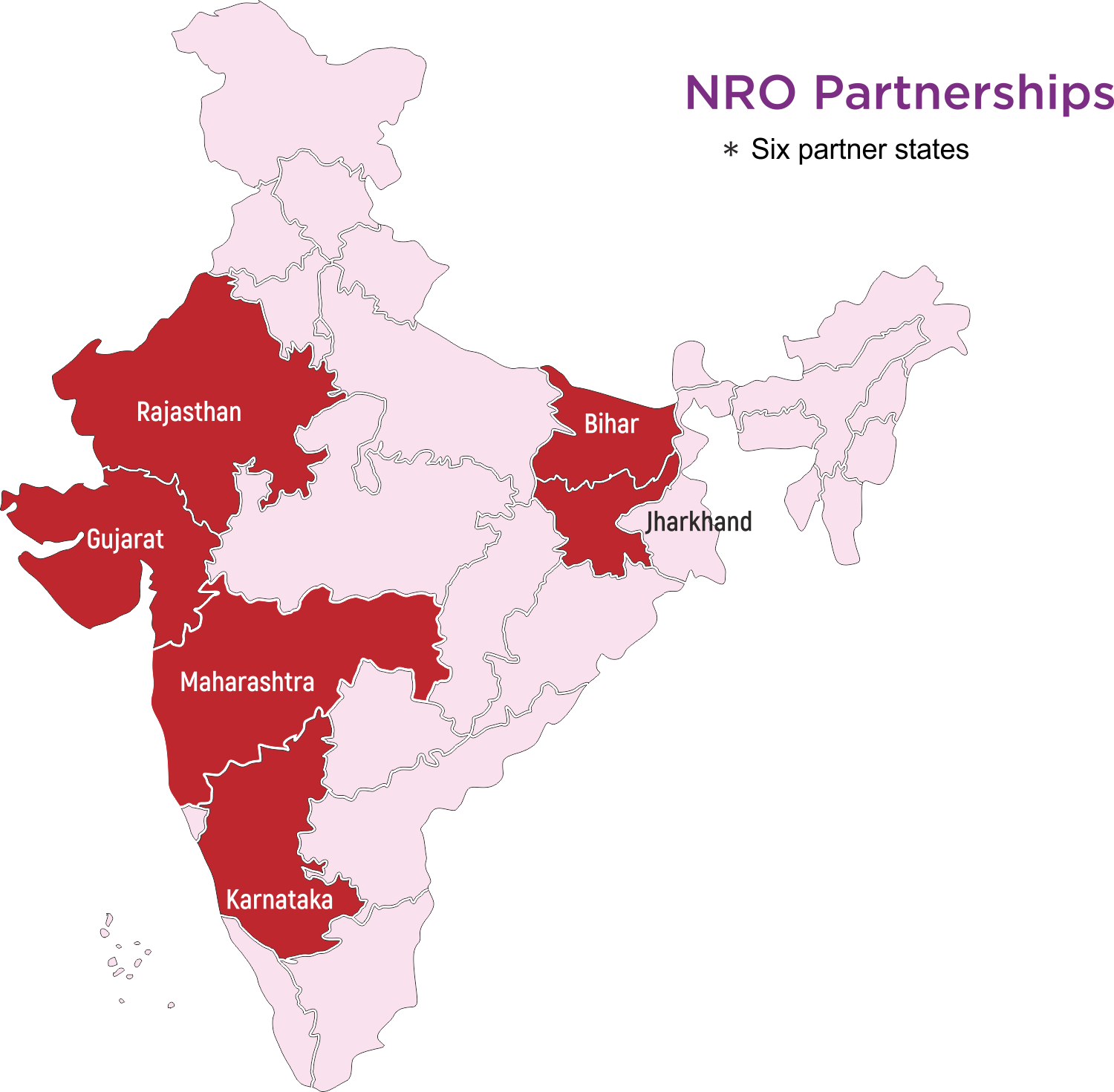
Programmes (17)
BACKGROUND
Micro-enterprises of the poor that are developed as part of poverty alleviation programmes often face serious operational challenges. Persistent hand-holding and capacity building support are needed to ensure these enterprises evolve into sustainable sources of livelihood for the poor. Based on this understanding, the Micro Enterprise Consultant (MEC) project focusses on developing field level structures which can provide multi-dimensional support to the rural micro enterprises of the poor.
As part of the MEC project, individuals are identified and trained from local communities to become Micro-enterprise Consultants. The MEC are responsible for providing hand-holding support to potential and existing rural entrepreneurs on a chargeable basis. The MECs are also encouraged to partner each other and form firms that leverage their diverse skill sets. These MEC firms offer a wide range of business consulting services to rural entrepreneurs. To provide rural entrepreneurs support services such as performance tracking of their enterprises and micro-enterprise accounting, the MEC project introduced an IT enabled real-time information system called Performance Tracking System (PTS) in its pilot locations. Since enterprises form a valuable part of the diverse pool of livelihoods that poor families depend on, the project envisages linking the Community Based Organisations (CBO) with MEC Firms to create mechanisms for the promotion of enterprise development among the poor in its pilot locations.
PROFILE
The MEC project has been implemented in six states across India including Bihar, Jharkhand, Karnataka, Maharashtra, Gujarat and Rajasthan on a pilot basis.
| PROJECT FOOTPRINT | |
| No. of partner states | 6 |
| No. of districts | 17 |
| No. of blocks | 180 |
| No. of gram panchayats | 6014 |
| No of MEC trained | 684 |
| No. of mentors | 14 |
BACKGROUND
Kudumbashree NRO provides technical support to partner-States for short-term special projects based on their needs. These special projects are customized to meet the requirements of the partner-States based on NRLM. Currently, Kudumbashree NRO is in partnership with Goa, Lakshadweep and Sikkim for the implementation of short-term special projects in pilot locations. With its partnership with these states/union territory, the objective is to create a model for supporting both PRI and CBO networks and for developing a community based system for supporting micro enterprises for effective convergence leading to sustainable and better implementation of NRLM. In the long run the partnership is expected to result in the creation of a robust institutional structure of the poor that is closely linked to local governance and development.
| PROJECT FOOTPRINT | |
| No. of partner states/union territory | 3 |
| No. of districts | 5 |
| No. of pilot blocks/dweeps | 26 |
| No. of gram panchayats/village dweep panchayats | 210 |
| No. of CRPs trained | 728 |
| No. of mentors | 13 |

BACKGROUND
The PRI-CBO Convergence approach is based on the premise that if institutions of the poor such as Community Based Organisations (CBO) and constitutionally mandated body like Panchayati Raj Institutions (PRI) collaborate with each other to work for the development of the village, they can significantly enhance the livelihood and social security of the vulnerable and poor. The PRI-CBO Convergence project builds capacities of PRI and SHG network to work together to strengthen the poor’s access to entitlements and enhance the public’s participation in local governance for improved service delivery. To achieve this, a cadre of motivated community individuals called Local Resource Group (LRG) are nurtured in partner States. The LRGs are expected to work towards enabling convergence of PRI and CBO for the development of the village. As part of the project strategy, the CBOs and PRI are introduced to participatory assessment, planning and monitoring tools to help local communities build awareness and plan for their access to schemes and benefits.
PROFILE
The PRI-CBO convergence project has been implemented in twelve states till now across India and includes states like Assam, Jharkhand, Rajasthan, Karnataka, Maharashtra, Odisha, Chhattisgarh, Manipur, Uttar Pradesh, and Tripura. Arunachal Pradesh and Meghalaya are the latest addition to the states where the PRI-CBO convergence project has established its presence. At present, the project is functioning only in states like Assam, Meghalaya, Arunachal Pradesh, Manipur, Mizoram and Uttar Pradesh.
| PROJECT FOOTPRINT | |
| No. of partner states | 13 |
| No. of Districts | 61 |
| No. of Blocks | 105 |
| No. of Gram Panchayats | 950 |
| No. of Mentors | 60 |

